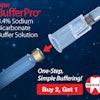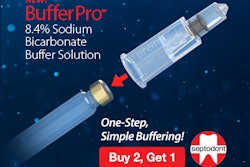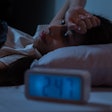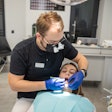
Pharmaceutical Associates, a South Carolina-based drug manufacturer, has discontinued production of chloral hydrate oral solution, an anesthetic used in pediatric dentistry. The company cited "business reasons" as the source of the decision, which came in March.
"I think it's probably going to have a fairly wide impact," Stephen Wilson, DMD, PhD, professor and director of the Division of Pediatric Dentistry at Cincinnati Children's Hospital Medical Center, said in an interview with DrBicuspid.com. "I talked to a couple of colleagues who use it, and they're not quite sure what they're going to do to substitute it with a different drug or combination of drugs. That is the case with us, as well."
A bulletin from the American Society of Health System Pharmacists (ASHP) noted there are no other manufacturers of the oral solution form of the drug. However, 500-mg capsules or powder forms that can be used to create a solution are still available, according to Dr. Wilson.
However, "I think because it's a controlled substance, dentists and pharmacists probably aren't going to be excited by the prospect of compounding it into a solution," he said.
“I'm surprised the manufacturer didn't discontinue it sooner.”
— John Liu, DDS, AAPD immediate past
president
The drug, labeled as a sedative hypnotic agent prior to surgery and before electroencephalogram in adult and pediatric patients, has several uses, according to the ASHP.
Its niche was for use in pediatric patients who were undergoing nonpainful procedures and required a sedative-hypnotic agent. Its labeled use also included treatment for the symptoms of alcohol, narcotic, and barbiturate withdrawal. In radiology, practitioners use it to prepare infants for MRI scans.
Multiple concerns
But its use in dentistry has not been without controversy, and there are mixed opinions about its usefulness.
"Quite frankly, I'm surprised the manufacturer didn't discontinue it sooner," John Liu, DDS, immediate past president of the American Academy of Pediatric Dentistry, told DrBicuspid.com. "There were issues and questions about its effectiveness and safety that I could clearly see in some of the patients I treated with chloral hydrate that concerned me enough that I stopped using it in the late 1980s."
The University of Florida discontinued its use after the death of a 5-year-old boy in 2010 who had been sedated with the drug. Dylan Shane Stewart went into cardiac arrest during a procedure to have four fillings and eight crowns placed. The amount administered was reportedly "far more" than the recommended dosage, causing a toxic reaction. While the drug is safe and effective if the exact dosage is used, some experts say it can be "unforgiving" if too much is used.
Dr. Wilson agreed, although predictable results can be achieved, he added.
"In high doses or if you are not properly trained with it or not familiar with side effects or not familiar with patient and his or her characteristics -- say they have sleep apnea or enlarged tonsils, for example -- it can potentially be a problem-causing drug," he said. "The way we use it at Cincinnati Children's is in a lower-than-therapeutic dose. Based on my experience and others using a low dose, it has a totally different effect."
He contends that using chloral hydrate oral solution is beneficial when treating children who are undergoing restorative care or extractions. In low doses it renders them "mellow" but "interactive," he said, making them more approachable. In tandem with an analgesic, it can work well.
"One of the reasons you use it is for a longer working time," said Dr. Wilson. "That usually means you have a significant amount of dentistry to do. Consequently, another option is general anesthesia, but the problem is that's extremely expensive and most insurance companies do not cover it for dental procedures."



















